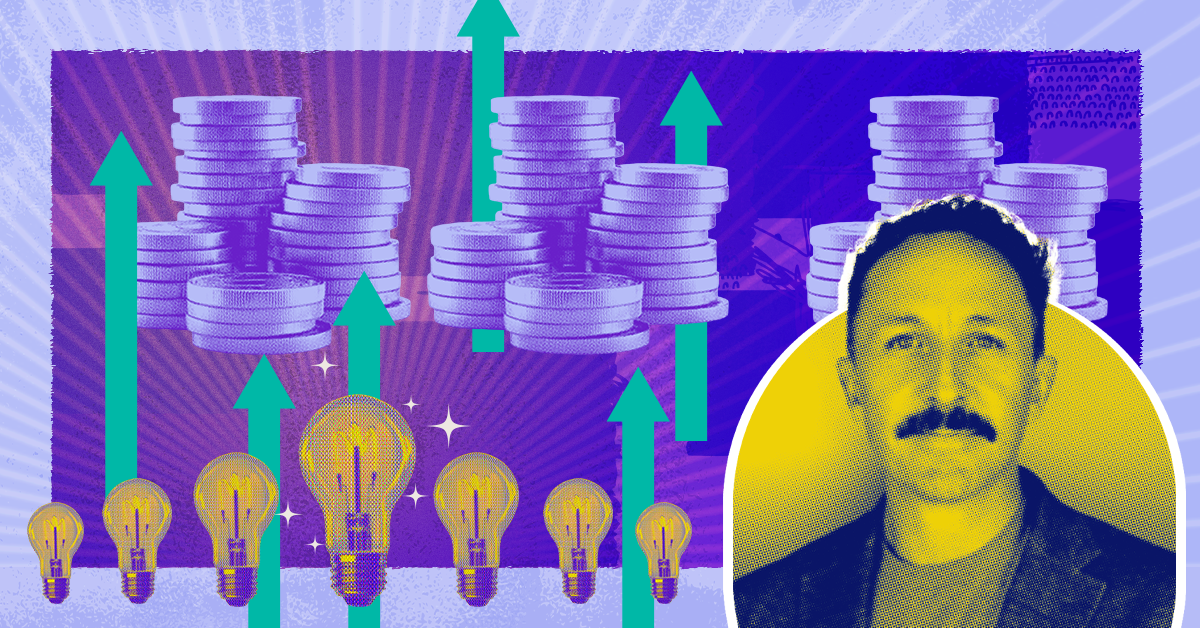New year, new B2B marketing trends. Are your sales and marketing teams ready to act on them?
We’ve rounded up the top eight B2B marketing trends that’ll be important for B2B tech marketers to understand in 2023. They cover everything from building trust to looping subject matter experts into your marketing efforts. Let’s see what we can expect this year.
B2B marketing trend #1: Trust will beat tactics
Whether you believe there’s a recession coming (or already occurring) or not, just the possibility of a recession is enough to change people’s behavior, especially when it comes to their budget. The same is true for organizations. In 2023, organizations may rely less on traditional marketing — even less than they did in the past — and turn to advice from trusted influencers and peers. It’s up to marketers to tap into these indirect channels so they can build a relationship with their brand audience through the most trusted mediums.
B2B marketing trend #2: The loop-the-loop buyer’s journey
The buyer’s journey is not a straight line for your target audience anymore. At least, it isn’t most of the time.
If you’re in an established industry with a product that rarely changes, you could have a straightforward sales funnel that goes straight from number of visitors to number of leads to number of demos booked to number of sales.
But more often than not, your target audience goes on a loop-the-loop buyer’s journey (they get to one stage in the journey and then they double back) or an “I’ll start here” buyer’s journey where they enter the buyer’s journey three steps ahead of your expected starting point. One example is by going straight to requesting a demo.
Why is this important to understand? It means that the buyer’s journey may not be with your brand at certain points. Let’s take the example of the customer that enters the buyer’s journey at the demo stage. As far as you’re concerned, they didn’t even go through the awareness or even consideration stage. In reality, they may have gone through those stages using other sources, like a subject matter expert on a third-party site or a review video done by an influencer.
In 2023, it’ll be important to understand the full complexity and multiplicity of your buyer’s journey and to be present at each leg.
B2B marketing trend #3: Focus on value-led content generation for your content marketing and demand generation playbooks
Does this sound familiar?
A subject matter expert or senior leader at your company participates in a webinar. There are a lot of great insights in the recording. So you pull out the five best snippets and share them on different channels with a link to the full recording, which also supports your social media marketing strategy.
This is great, but it could be even better. As Fran Langham, Head of Demand Generation at Cognism, explains, content marketing and demand generation playbooks need to be continually refined and lead with value.
What does it mean to lead with value?
Well, instead of repurposing four or five snippets for social media, the content marketing team could ask the participants to re-record those cool insights in a video that’s designed for the specific social channel it’ll be shared on.
Sure, this may result in fewer snippets, but it does mean those snippets will be more valuable, more tailored to that channel, and more likely to encourage engagement from that social media channel’s audience.
See more: How tech workers can counter SAD and the winter blues.
.webp)
B2B marketing trend #4: Engage with the experts and build your relationships with them
B2B marketers have enjoyed success with one-off or short-term influencer marketing campaigns. Now, they’re moving towards long-term relationships with influencers, so they can become a valuable and reliable source of information for their brand audience.
Building long-term relationships with subject matter experts and influencers can also help marketers act on Trend #3 which is to create value-led content. LinkedIn influencers are an important group of people to tap into! And they can also help you harness the power of personal branding, which is an important way to demonstrate authenticity online, since algorithms typically favor personal profiles over business profiles.
B2B marketing trend #5: Strike a smart balance between data-driven and human-centric decision making
The explosion in marketing technology has led to information overload. Artificial intelligence is making it easy to streamline a lot of the data processing and decision making that marketers have to do.
But given the importance of trust and the complexity of the buyer’s experience, it’ll be important for marketers to strike a balance between machine-driven decision making and intuition-driven decision making.
Marketers can strike this balance by continuing to speak to customers while using technology, evaluating their technology stack on a routine basis to ensure it still serves their business goals, and prioritizing the buyer’s experience by doing things like un-gating content, personalizing emails, and using data from previous emails to determine what their target audience needs.
Keep reading: Features and functionality your first affiliate software should have.
.webp)
B2B marketing trend #6: Understand how to work within SEO’s changing dynamics
SEO is an ever-evolving world, especially as Google continuously updates its algorithm to ensure users are getting the best experience possible. In 2023, sales and marketing teams are going to have to deal with a number of SEO-related trends including machine learning and AI, Google updates, Google’s planned phase out of third-party cookies, and the shortage of SEO talent. Marketers will also have to stay on top of SEO for voice, mobile, and image searches.
B2B marketing trend #7: Own your owned content channels
Take the time to invest in creative, insightful content to share through your owned content channels. Owned content channels are channels that you have complete control over, such as your LinkedIn page or emails. It’s also important to develop trust with your audience, since clogging newsletters with unhelpful content has compelled audiences to stop opening them.
There’s also an opportunity to embrace user-generated content. While this is a traditionally B2C play, there is an opportunity in the B2B space. This could include reviews, case studies, or even your employees developing their own personal brands.
B2B marketing trend #8: Buying committees are getting younger
Today’s B2B buyers are younger and have digital-first expectations of their buying experience. Millennials are leading the charge (accounting for over half of all B2B buyers, an increase of 70% in two years, according to Google) and they want their B2B buying experience to be similar to their B2C buying experience. This means they expect self-serve portals, user-friendly apps, fast load times, and an omni-channel experience where they can make purchases or access information from their smartphone, tablet, or computer and that that information is the same as the information that a customer service rep sees when they call in.
B2B marketing trend #9: Focusing on customer retention
Take a look at your marketing strategy. Are you hanging on to your customers? Does your marketing strategy pay little mind to people who have already made a purchase?
It’s less expensive — and offers more long-term value in the form of loyalty and social proof and referrals — to retain existing customers than it is to acquire new ones. Think about how your marketing efforts can help with retention. A few examples include rewarding loyalty through loyalty programs, creating a referral program, or sending helpful content that allows your customers to get the most value out of your solutions.
As a marketer, you have a lot of choices to make every day about where to focus your energy. Understanding upcoming trends will help you make strategic choices about how to allocate resources, what tactics or technologies are worth pursuing (and which are distractions), and most importantly, how to best tell your story to prospects and deliver support to existing customers.

















